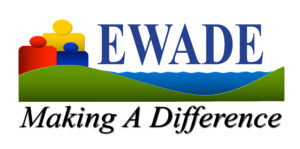
World Water Day 2024: Water for Peace.
In the heart of southern Africa lies the Kingdom of Eswatini, a nation characterized by its rich cultural heritage and picturesque landscapes. However, amid the natural beauty, Eswatini, like many regions around the world, grapples with the critical challenge of ensuring access to safe and potable water for its population. Water is not merely a resource; it is a fundamental human right essential for life and development. Access to safe drinking water is a cornerstone of public health, economic prosperity, and environmental sustainability.
World Water Day serves as a platform for celebrating the essence of water and bringing attention to the 2.2 billion individuals worldwide who live without access to safe water. This global observance is not only about recognition but also a call to action to address the pressing issue of water scarcity. At the heart of World Water Day lies a crucial commitment to advancing Sustainable Development Goal 6, which aims to ensure water and sanitation for all by the year 2030.
The domestic water scenario is a pivotal aspect of holistic development, and its significance cannot be overstated. Inadequate access to a sufficient quantity of potable water, coupled with challenges in sanitation, stands as a significant contributor to prevalent diseases such as diarrhoea and various skin ailments. Within this context, diarrhoea emerges as the predominant ailment, presenting a formidable challenge to public health.
In specific regions like the Lubombo, diarrhoea stands as the leading health concern. Disturbingly, 48% of households in the country lack sustainable access to improved water sources, underscoring the urgency of addressing water-related challenges. As we delve into the intricacies of water access, it becomes evident that promoting sustainable water sources is not only a goal in itself but a vital step toward fostering healthier communities and achieving broader developmental objectives.
The Eswatini Water and Development Enterprise (EWADE) successfully executed two new PWSS projects: one in Lusabeni catering to 548 households (with a population of 2962) and another in Gangakhulu providing water access to 142 households (with a population of 475). These systems are designed with private connection distribution, ensuring convenient access to safe and potable water.
The Lusabeni Portable Water Supply System (PWSS) encompasses the Nkhanini community across six sections: Makhasane, Ntamakuphila, Ncandweni, Mncumaneni, and Phasentsaba, within the Ngcamphalala chiefdom. Nkhanini Primary and High School, Umphakatsi and community Neighborhood Care Point which serve as a preschool and a dip tank.
The Ganagakhulu PWSS serves the Gangakhulu community and a designated section of the Mngomentulu chiefdom.
Both PWSS initiatives reached completion in December 2023 after seven months of dedicated efforts, commencing in March and April of the same year. Currently, these projects are in a defect notification period that spans 12 months, during which any issues that may arise within the systems will be promptly addressed. This meticulous approach ensures the longevity and effectiveness of the newly established water supply systems.
Two contracted firms, namely Africivils and Ultra Civils Investments, were entrusted with the construction of the two new Portable Water Supply Systems (PWSS). The objective was to expedite the completion of the projects before the expiration of the funds allocated by AfDB, set to conclude in December 2023.
The water sources for these systems are derived from the Main conveyance system, primarily fed by the Lubovane Dam through the Main Canal South (MCS), covering a distance of 58KM to the last offtake point ,Dam 5.
Comprising advanced infrastructure, both PWSS incorporate a comprehensive biological treatment plant system. This system includes Vertical Roughing Filters, Slow Sand Filters, Clear Water Sump ,Rising Mains,storage reservoirs, Power Supply (electricity and solar system) , distribution network and private homesteads connections standpipes.
Recognizing the importance of sustainability, EWADE’s water management team will oversee the ongoing operations of the PWSS. This strategic decision aims to avoid the challenges associated with previous projects where community handovers resulted in ineffective outcomes, often referred to as “white elephants.”
To ensure the long-term viability of the PWSS, communities have actively participated by contributing over 80% of Operation and Maintenance subscriptions. Moreover, the implementation of a 100% VIP toilet coverage underscores the comprehensive commitment towards community welfare and sanitation. There is a dedicated team to work for the PWSS as a service provider to ensure sustainability. Both communities have already contributed towards operation and maintenance subscriptions in advance.
The primary objective of the LUSIP initiative is to elevate the quality of life for residents within the designated Project Development Area (PDA). Within the realm of development, a pivotal concern is the provision of domestic water.
The financial backing for this transformative project is provided by the African Development Bank, with a contracted sum amounting to SZL 19,371,954.41 (inclusive of VAT & Levy) specifically allocated for the Gangakhulu region.
Afri Civils (Irrigation for Africa) has been awarded a contract for a specified sum SZL 48,126,308.81 to contribute to the realization of the LUSIP goals in enhancing water infrastructure and access in the targeted area.

